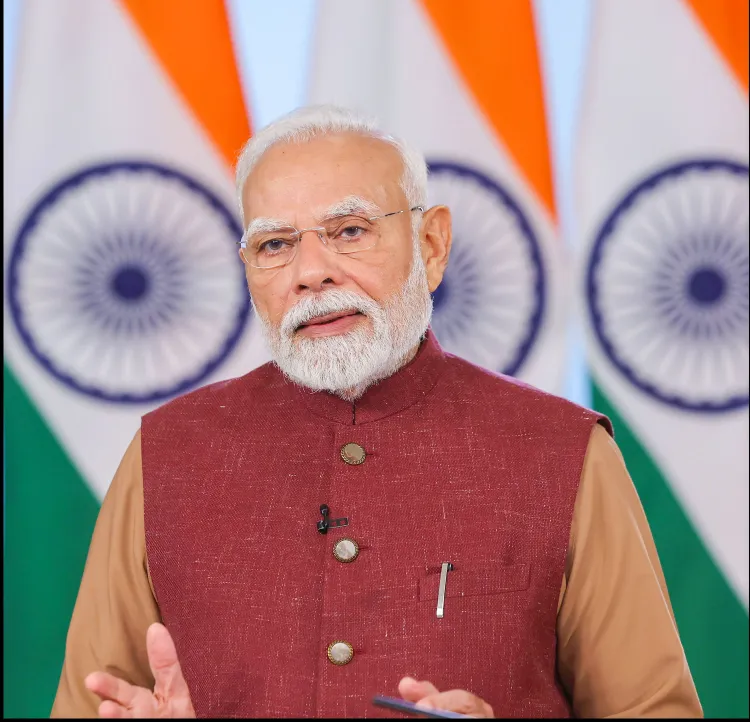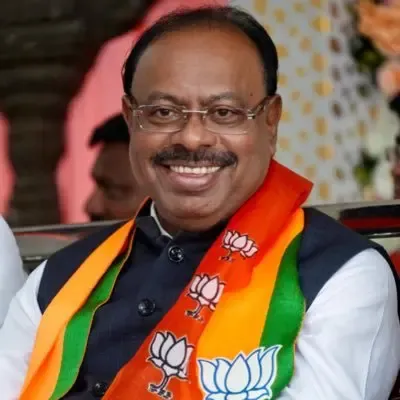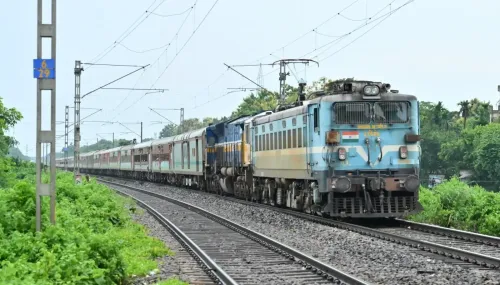How is PM Modi Committed to Transforming Farmers' Lives?

Synopsis
Key Takeaways
- Prime Minister Dhan-Dhaanya Krishi Yojana aims to transform farmers' lives.
- The scheme will span six years, covering 100 districts.
- Focus on sustainable agricultural practices and crop diversification.
- Integration of existing schemes for optimized implementation.
- Renewable energy projects will create jobs and boost local economies.
New Delhi, July 16 (NationPress) Prime Minister Narendra Modi stated on Wednesday that the government is dedicated to effecting a transformative change in the lives of farmers, highlighting the Prime Minister Dhan-Dhaanya Krishi Yojana as a pivotal initiative towards this objective.
In a message shared on the X social media platform, PM Modi remarked: “This initiative will not only enhance crop yields in districts that have historically struggled in agriculture but also elevate the earnings of our food producers.”
“We are devoted to making a meaningful impact in the lives of our farmer community. In this pursuit, the Prime Minister Dhan-Dhanya Agriculture Scheme has received approval today,” the Prime Minister elaborated.
The Union Cabinet, led by PM Modi, has sanctioned the “Prime Minister Dhan-Dhaanya Krishi Yojana” for a duration of six years, commencing from 2025-26 to encompass 100 districts.
This scheme is modeled after NITI Aayog’s Aspirational District Programme, which uniquely targets agriculture and related sectors.
The initiative aims to boost agricultural productivity, promote crop diversification and sustainable farming practices, enhance post-harvest storage at panchayat and block levels, improve irrigation systems, and ensure the availability of both long-term and short-term financing, as per the official release.
This scheme was unveiled as part of the Budget proposals for 2025-26 to develop 100 districts under the “Prime Minister Dhan-Dhaanya Krishi Yojana.”
It will be executed through the integration of 36 existing schemes across 11 Departments, alongside other state initiatives and collaborations with the private sector.
One hundred districts will be selected based on three critical factors: low productivity, low cropping intensity, and limited credit distribution.
The allocation of districts in each state/UT will depend on the proportion of Net Cropped Area and operational holdings. Nevertheless, at least one district will be chosen from every state, according to the official statement.
As India reaches 50% of its installed electricity capacity from non-fossil fuel sources, the Cabinet Committee on Economic Affairs (CCEA) has approved an increased delegation of authority to NTPC Ltd for investments in NTPC Renewable Energy Ltd. and its various joint ventures/subsidiaries, aiming to establish renewable energy capacity with a budget of up to Rs 20,000 crore.
This decision is “a significant boost to India's endeavors to enhance renewable energy capacity,” PM Modi shared on X.
Renewable energy projects will also create both direct and indirect job opportunities for local communities during the construction phase and throughout operations and maintenance (O&M).
This will foster growth for local suppliers, enterprises/MSMEs and will stimulate entrepreneurial opportunities within the nation, alongside promoting employment and socio-economic advancement.









